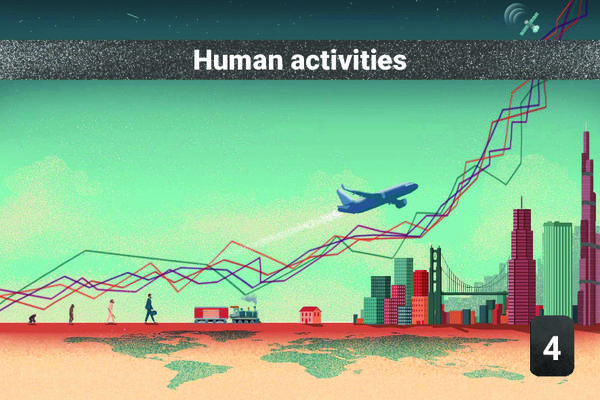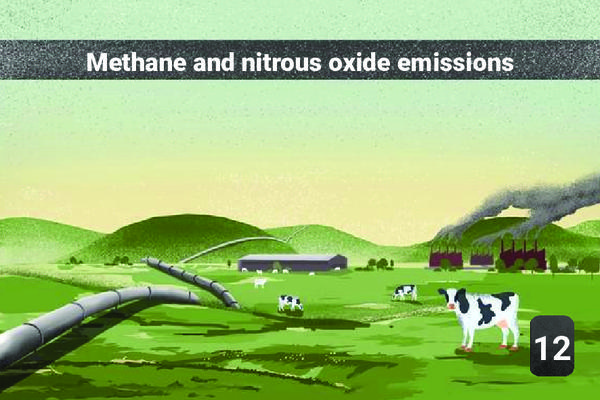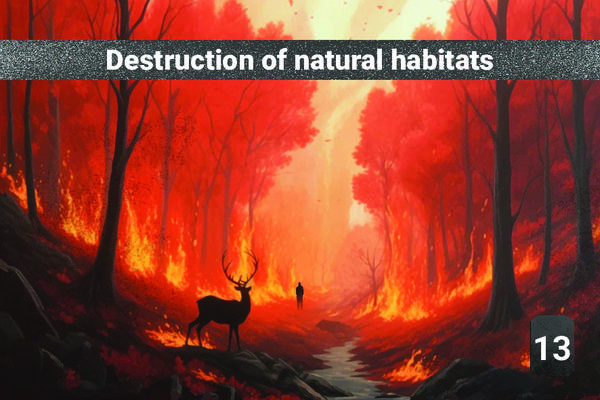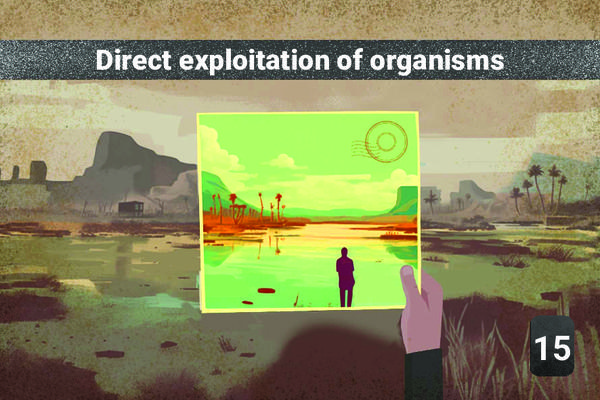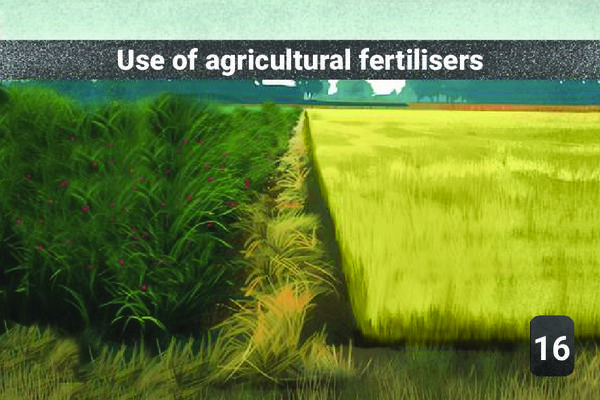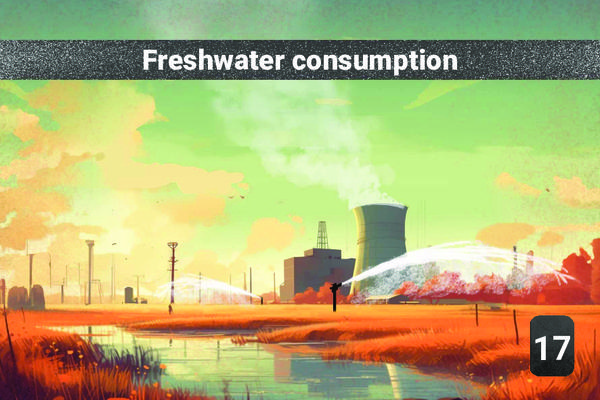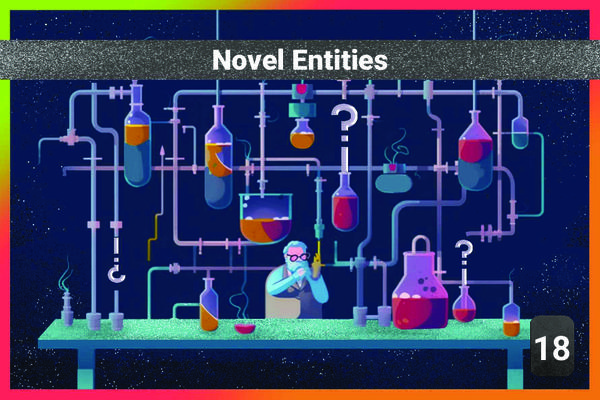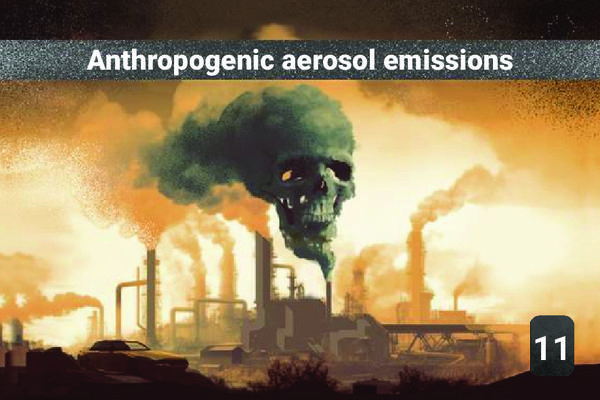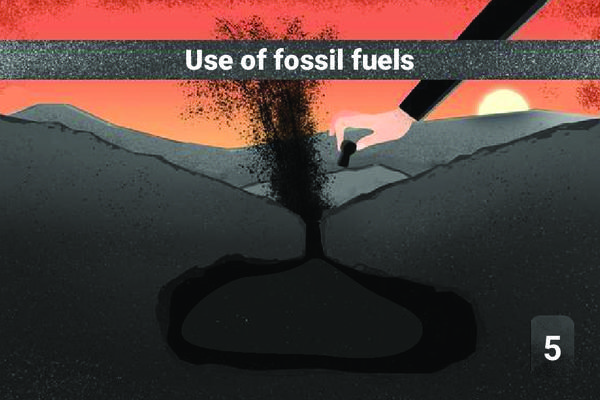14 - Agriculture
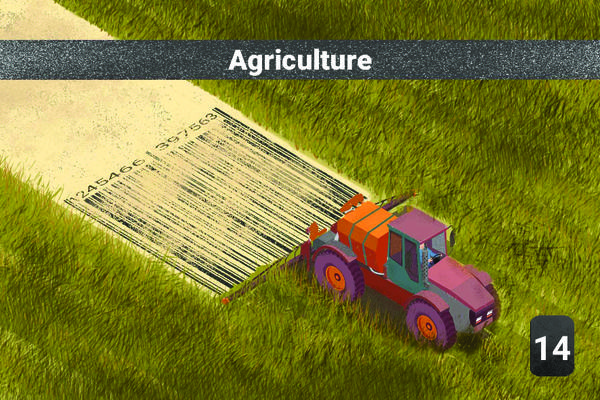
✏️ This explanation does not yet exist in your language… Just click here or send an email to fdn.memo@marc-antoinea.fr and suggest your translation!
1Cause
6Consequences
CH4: The digestion of ruminants (cattle, goats) releases methane via the enteric fermentation process. Organic matter is decomposed without oxygen. The same process takes place in rice fields.
N2O comes from the spreading of nitrogen fertilizers. The part of the fertilizer that does not go into the plant to make it grow oxidizes in the open air.
Agriculture requires freeing up areas dedicated to direct human food (or indirectly via animal feed and pastures). This release of surface area leads to the destruction of natural habitats, particularly through deforestation. The vast majority of deforestation is caused by agriculture. Soy cultivation in Brazil (mainly to feed livestock) contributes significantly to deforestation in the Cerrado and Amazon.
• Productivist agriculture/breeding accounts for 70% of drinking water withdrawals in the world (and up to 95% in certain developing countries), industry (20%) and domestic consumption 10%. • The reason is the gigantic irrigation of our crops. Some examples: 1kg of beef = 13,500 liters of water. 1 kg of cotton = 5,263 liters. 1 liter of milk = 1000 liters. 1 piece of white sugar = 10 liters. 1 liter of bottled water = 7 liters • In addition, a large part of irrigation water is lost through leakage and evaporation. • Among the biggest consumers: Nestlé (800 million liters per year) and Coca-Cola. The manufacture of 1 liter of Coke requires 2.5 to 6 liters of water, which is equivalent, for the global consumption of 350 billion liters of Coke/year, to 2100 billion liters of water/year for this alone. beverage ! To meet its enormous needs, the firm empties the aquifer resources of Mexico, India, Indonesia, Malaysia and African countries.
Conventional agriculture requires large quantities of fertilizers, including nitrogen synthesized with fossil gas, and phosphorus extracted from mines.
Productivist agriculture/breeding accounts for 70% of drinking water withdrawals in the world (and up to 95% in certain developing countries!), industry (20%) and domestic consumption 10%. The reason is the gigantic irrigation of our crops.

